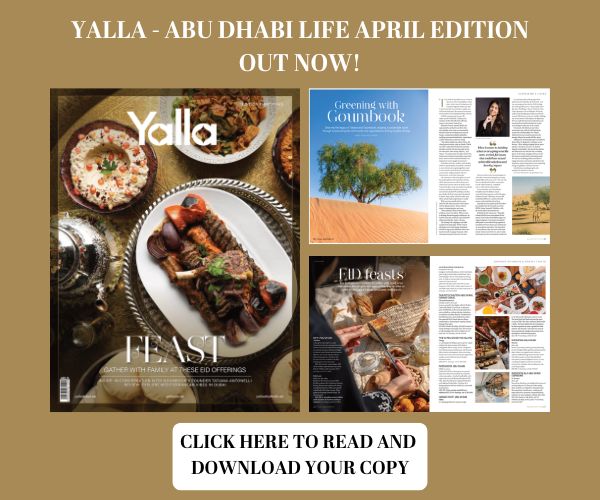Abu Dhabi’s approach to sustainability is going a step further with the help of the Sustainable Bioenergy Research Consortium and its partners.
It is hard to imagine that the process taking place on an unassuming plot of land in Masdar City is a research project that is aiming to change the course of history in terms of how aircraft are fuelled.
The pilot research facility of the Seawater Energy and Agriculture System (SEAS), aims to grow both food and fuel using desert lands irrigated by seawater, through utilising salt-tolerant plants and fish to produce biofuel.
Along with partners Etihad Airways, Khalifa University of Science and Technology, The Boeing Company, ADNOC (Abu Dhabi National Oil Company) Refining, Safran, General Electric (GE) and Bauer Resources, the Sustainable Bioenergy Research Consortium (SBRC) is behind the construction of SEAS.
Alejandro Rios G., Director of SBRC, is on a quest to optimise the crops’ harvest yields in order to produce more biofuel to use as jet fuel. The type of crop and sea life being used at SEAS is dictated by the UAE’s harsh desert climate.
“The system grows Halophytes, salt-tolerant plants that grow in soil with water of high salinity,” explains Alejandro Rios G.
“The particular plant being grown here is Salicornia, which is planted around October, November and harvested around July or August.”
He explains how the annual plants generate tiny oil seeds, which are then crushed in order to obtain their oil, which is essentially vegetable oil.
“The vegetable oil is put through a refining process that is very similar to the refining process of crude petroleum.
“It’s a hydrocracking catalytic process that uses hydrogen and catalysts to break down the molecules and reconfigure them so they’re able to produce what we call a synthetic paraffinic kerosene, which is essentially jet fuel.”
This particular SEAS plant that the SBRC built focuses on three subsystems. The integrated system, includes the Salicornia crops, several small reservoirs containing fish and shrimp, and a mini mangrove forest.
The UAE’s harsh desert climate is an ideal place to test out the robustness of the system, as the idea is to be able to export the technology to other parts of the world.
“Seawater is transported to the plant, which is used to feed the aquaculture subsystem containing fish and shrimp,” says Alejandro Rios G.
“Both species generate waste that essentially is fed to the second subsystem, which is the halophyte agriculture subsystem.”
The wastewater created by the sea life fertilises the salicornia and in turn the crop also cleans the water.
“The plants absorb the water and through the evapotranspiration process, the plants take the nutrients from the water that help the plants grow.
The water would then make its way back to the ocean but before then, we ensure the water passes through a third subsystem, which is our halophyte agroforestry.”
The halophyte agroforestry subsystem consists of Avicennia Marina or grey mangrove trees, which according to Alejandro Rios G is the only type of mangrove that can be grown in this part of the world.
“So again, the water leaves the salicornia, the agriculture subsystem, and arrives to the halophyte agroforestry subsystem, where the mangroves help to remove any remaining nutrients that are still in the water.
They are the lungs, if you will, as they also help us to clean the air” he says. “Water from the halophyte agroforestry section then goes out to a residual water trench, which represents the ocean, and is returned to the aquaculture subsystem.”
The project is currently being perfected before being up scaled, which would see the sea life element transformed into a large commercial fish farm facility.
“The system is modular”, says Alejandro Rios G, “and the idea to be able to create a technological package that will give the very basic guidelines as to how to make this system work anywhere in the world.”
“The hope is that this project becomes part of a much larger portfolio of solutions for the capacity to produce, not only sustainable aviation fuel, but also to address food security, since having a commercially viable fish farm means the UAE will also be able to produce its own food source too.”
Recommended For You...
Check out our Events Diary to see our full list of top events and activities in Abu Dhabi.






